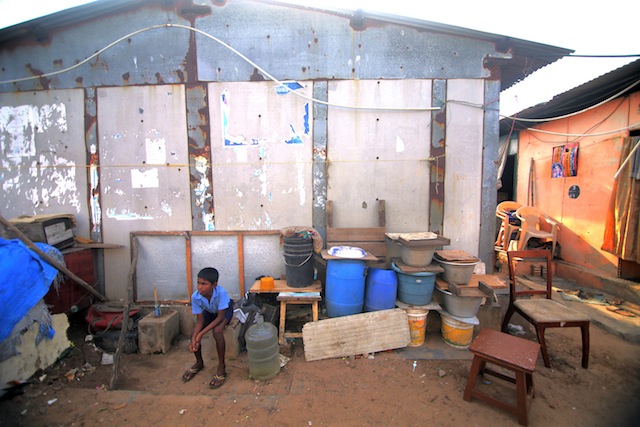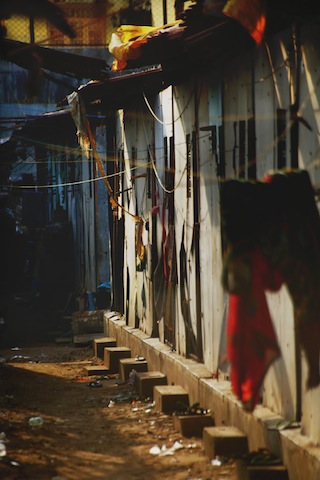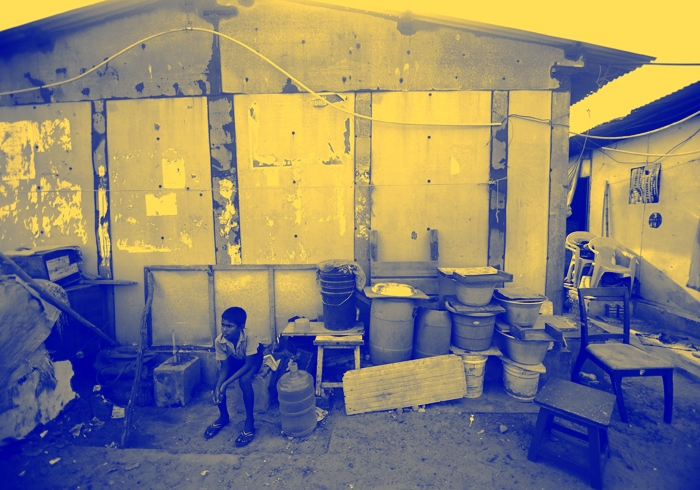Do you believe in karma? Most Indians swear by it. Any slight scepticism of that theory could induce mass suicide and madness in the context of the actual quality of life here. For instance, last year, the chief minister of Bihar enforced the prohibition of alcohol in the state. The funny part of the act was that all adults of the family were held responsible for the consumption and possession of liquor at home, even if only one member of the family carried or consumed alcohol. Additionally the act stipulated that offenders were nonbailable. Another new provision said that upon finding utensils with a mix of sugar or jaggery with grapes on the premises, the police could assume that liquor-making was in progress, and anyone providing presumed offenders with logistical support, such as vehicles or containers, could also be detained. It was incumbent upon homeowners to inform police if their tenants drank. The law empowered the police to confiscate premises where liquor was consumed or stored. (The act was later repealed.)
I’m one of those men who believes everything that happens to me is written in the order of things, karma.
Wouldn’t everyone turn into a lunatic in this country if not for karma theory? When I lament what bad deeds must have taken place in my past life to result in being born as a Tamil writer – being a paedophile, for example – one of my writer friends shushes me, saying that this is the destiny of all writers in this world. No, he should be wrong; else how could Berhane Mariam Sahle Sellassie, who writes in the lesser-known Amharic language, become popular? Writing in Tamil is like singing amidst a world full of hearing-impaired people. I got riled up when an international literary magazine published Andal’s works from the seventh century in the Tamil literature section, whereas all other sections carried contemporary authors’ works. The NRI English professors who translated Andal’s poems still live in ancient Sangam literature, not au courant with their coevals.
I’m one of those men who believes everything that happens to me is written in the order of things, karma. So whenever I see a temple, I prostrate and beg, “Give me a good translator!”
My own state is worse in this milieu, as I incessantly write about how the Tamils confront sex, a subject that is anathema here. Couples sitting in beaches and parks are examined with knit brows both by public and police. Sometimes the latter have the audacity to ask a couple whether they are married; if not, there is a high probability that the couple will be made to visit the police station. Five-star hotels, too, check whether the couple is married before allowing them to have a room. It is in this environment that children are raped and killed. A twenty-five-year-old software engineer raped and immolated a six-year-old girl recently. His aim was not to kill her; he didn’t want a deponent for his crime.

Thus, being a transgressive writer, the doors of reception never open for me in the heart of writers, or in a society that does not read literature. Well! My acumen, devoid of any inhibitions about sex, was a gift from the place where I was born and raised. The small town was populated by Muslims, Christians and Hindus within the radius of four kilometres. A custom that was considered taboo in one religion was not necessarily wrong in the other. If marriages between cousins were accepted in one religion, it was a crime in another. The French territory of Pondicherry (now Puducherry), which was separated from our town by no more than a bridge, tolerated the consumption of alcohol when it was illegal in our locale. The impact of all these cultural differences filled my young mind with distrust.
Back then, my nose was numbed by the malodours emanating from the cremation ground, which could concuss our entire area. Now it just serves as an organ for breathing.
Our house was perched in the western corner of the town that was inhabited by the slums of the thombar caste, who were considered untouchable. The women cleared the human faeces from the dry latrines (simple pits without water) of the town. Excreta was removed using brooms, tin plates and baskets. Mud was spread on the stool for easy removal and was scooped, shoved into the basket via brooms. Readers might find reading this abhorrent, but manual scavenging still prevails in many villages. Many a time, when I accompanied these hapless scavengers, I would frightfully enquire about the blood spread on the waste. They would imperviously reply ‘piles’. If someone was ill with dysentery, then the women have a tough time cleaning. Men most often collected pig’s excreta, to dry and sell as a manure.
My house was between the burial ground and cremation ground. Rainy season saw lots of deaths, and there were always bodies getting cremated. Back then, my nose was numbed by the malodours emanating from the cremation ground, which could concuss our entire area. Now it just serves as an organ for breathing.

As youths, we knew only two jobs; smuggling or becoming a gangster. Gangster life enthralled me, as my two uncles were notorious gangsters in the area. I drank oxtail soup – not particularly the tail, the area of the tail that is attached to the body of the ox – daily, as instructed by my uncles, in order that I might have a robust and tough body. If caught by the rival gang or police, it would have the strength to bear the blows. But when one of my uncles fainted after being slashed with a weapon 30 times, I got scared, ditched the idea and fled from my town for a better life.
Light-headed with famishment, lying down on the lawn of a park, I tried to eat the scutch grass that swayed near my mouth.
My two-year life as a solitary waif once saw me going without food for three days. Light-headed with famishment, lying down on the lawn of a park, I tried to eat the scutch grass that swayed near my mouth. The siddhars have said that eating scutch grass cuts down hunger for many hours. The smell of dog’s urine in the grass nauseated me, but there was nothing in my stomach or intestines to throw up. I heard a crunchy sound near me and excitedly looked over: a mangy dog was crunching dried shit hastily. Immediately I got into a bus and picked a pocket. It became a habit. One day I saw a couple making out behind a bush, and when they left I spotted a gold chain lying around; it provided food for me for many days.
I bought a blade and got onto a bus to do the job one morning, only to find that the blade packet was empty, and instantly I left that stunt and roamed with the gypsies for a few months. Soon after I befriended a gangster, who was the head of a team of contract killers. A few years back he called me and said that he runs an educational institution, and asked whether I could get him a villain role in a film as I now have a lot of friends in the film industry. I asked him why a true villain should act as one.
Postscript: I still get nightmares of dry latrines and can’t avoid throwing up at times.
First published in the Summer 2017 issue of ArtReview Asia
